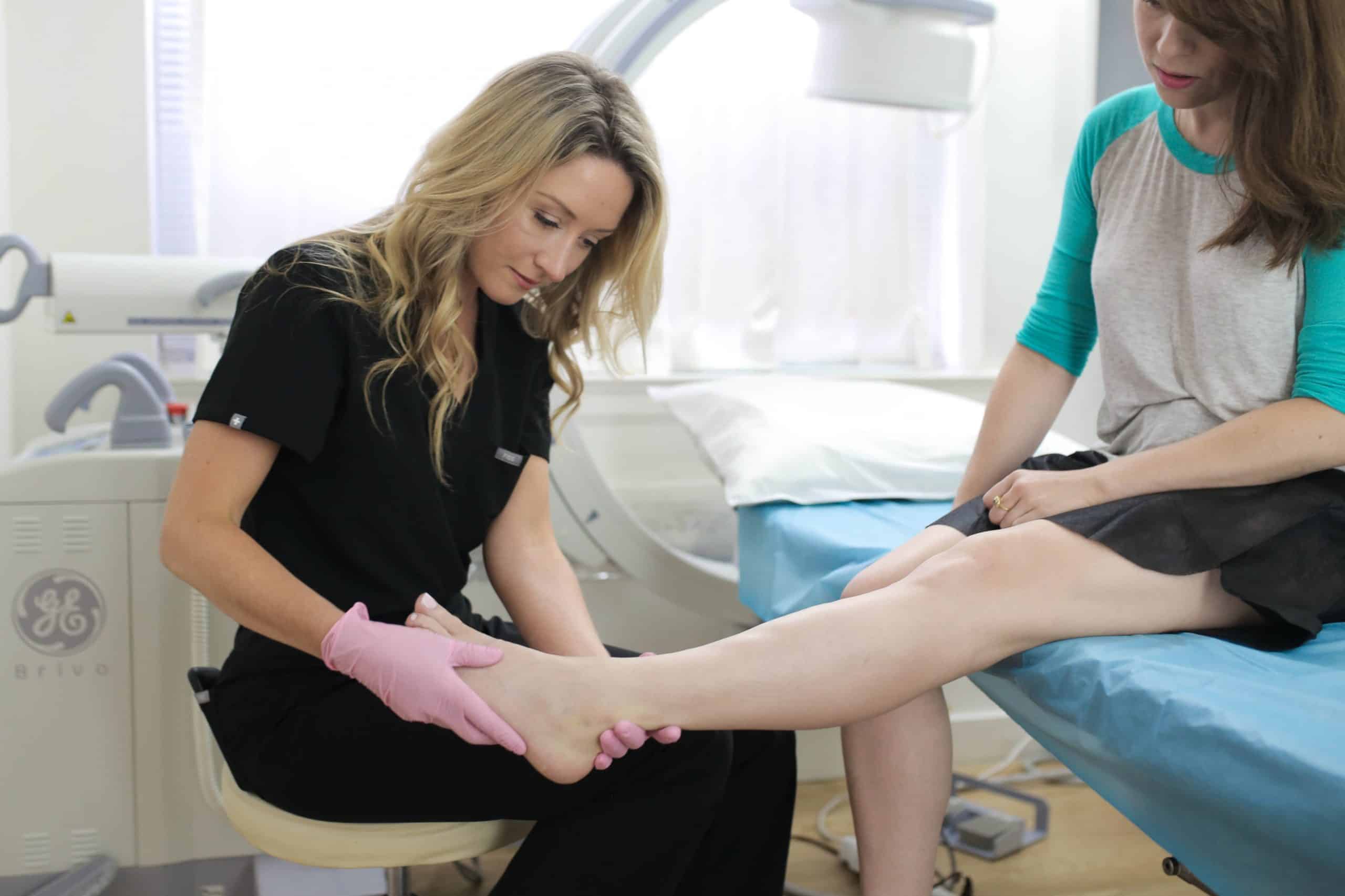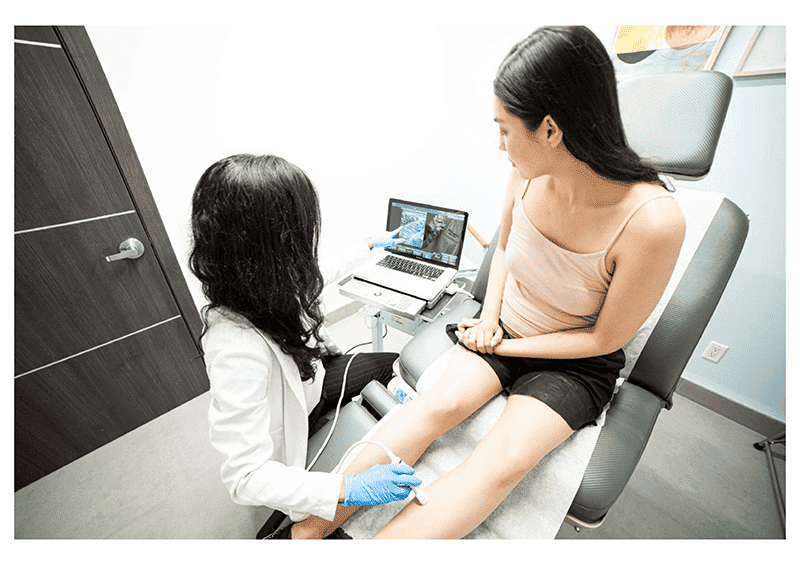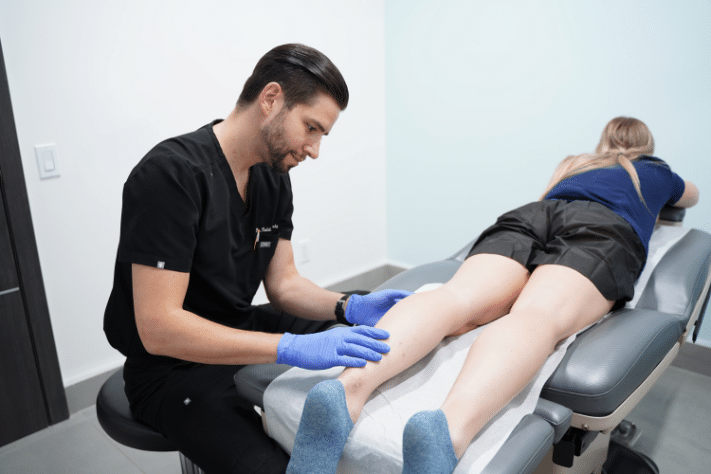Let’s be true; no one likes the appearance or sense of those bulging, twisted veins coming out of the legs. But past the cosmetic situation, varicose veins can surely sign larger troubles with your movement. So, how do you already know when it’s time to forestall ignoring those veins and get professional assistance?
Here are 7 signs you should visit a vein treatment clinic right away:
1. Your Legs Feel Heavy or Tired All the Time
If your legs constantly feel achy, heavy, or just tired, particularly at the end of the day, that would be more than simply exhaustion. This is often one of the earliest signs and symptoms of vein troubles. Don’t brush it off. A brief visit to a vein treatment centre can provide you with some real solutions.
2. You’re Seeing Bulging or Twisted Veins
Those thick, rope-like veins you spot on your legs? Yup, those are varicose veins. They show up whilst blood doesn’t float properly and swimming pools in your veins. If you’re wondering, “Are varicose veins covered by insurance?” the answer is usually yes if the condition is causing pain or other symptoms. It’s worth checking with your provider.

3. You Have Swelling in Your Ankles or Feet
Swelling, mainly after sitting or standing for long durations, may be another caution sign. It is probably subtle at the start; however, if it’s taking place more often, it could be time to get evaluated at a vein treatment clinic near you.
4. You Experience Cramping or Throbbing Pain
Night cramps or a consistent throbbing in your legs may be due to poor circulation. These signs shouldn’t be omitted, particularly if they interrupt your sleep or daily life.
5. Skin Discolouration or Rashes on Your Legs
When vein problems worsen, they can result in skin problems like discolouration, dryness, or itchy rashes. These symptoms frequently show up around the ankles and are signs and symptoms of increased strain on your veins. A visit to a “Centers for Vein Treatment in New Jersey” (or anywhere near you) can help prevent the problem from getting worse.

6. You Have Open Sores That Won’t Heal
Leg ulcers or open sores, especially near the ankles, are serious signs of advanced vein sickness. These are painful and need immediate medical attention from a vein professional.
7. You’re Just Not Sure What’s Going On
Sometimes, the symptoms are subtle. You may not have aches or visible veins. However, something simply feels “off”. In this case, it’s smart to get evaluated via a vein specialist. These medical doctors focus on diagnosing and treating vein conditions. Wondering, “What kind of doctor is a vein specialist?” Typically, they’re vascular surgeons, interventional radiologists, or phlebologists, medical doctors trained specifically in vein care.
Final Thoughts
Your veins are more important than you would possibly suppose. If you’re noticing any of those signs and symptoms, don’t wait. A visit to a vein treatment center can assist in diagnosing the difficulty early and possibly even save you from bigger problems down the road. The good news? There are many centres for vein treatment in New Jersey and across the U.S. that offer non-invasive, cutting-edge tactics. Most remedies are quick, rather painless, and frequently covered by insurance when medically necessary.
If you have noticed bulging, twisted veins on your legs, you are not alone. Varicose veins are a common condition that affects millions of people, especially with age. Fortunately, visiting a vein treatment center can help you restore both comfort and confidence. With a range of minimally invasive treatments and expert care, centers for vein treatment New Jersey are equipped to help you achieve healthier legs.
What Are Varicose Veins and Why Do They Happen?
A problem with the valves in your veins can cause varicose veins, which means blood flows back and pools. As a result, the veins swell and become twisted and they are noticeable because they usually appear blue or purple. Although they are sometimes regarded only as varicose veins, they can also be the source of aching legs, feeling heavy, swelling and in extreme cases, ulcers or leg changes.

What Kind of Doctor is a Vein Specialist?
Are you wondering what kind of doctor is a vein specialist? People in this field normally receive specific training in vascular surgery, interventional radiology or dermatology, to help with venous disorders. They can detect vein issues and carry out advanced, less invasive surgeries to improve blood flow and ease symptoms.
What Do Vein Centers Do?
A vein center is an office where doctors focus on diagnosing and treating conditions of the veins. If your issue is spider veins, chronic venous insufficiency or varicose veins, these clinics give you all the care you need. When you visit a vein treatment center, you can expect a physician to examine your veins as well as do an ultrasound for further information.
What Are the Treatment Options for Varicose Veins?
When it comes to what are the treatment options for varicose veins, it helps a lot and needs only a brief recovery period. A number of helpful treatments are offered at New Jersey centers for vein treatment, such as:

● Sclerotherapy: Sclerotherapy involves a quick puncture to the skin followed by a solution that makes spider and small varicose veins collapse and vanish.
● Endovenous Laser Therapy (EVLT) and Radiofrequency Ablation (RFA): Endovenous Laser Therapy (EVLT) and Radiofrequency Ablation (RFA) are heat-based treatments that are used to block off damaged veins.
● VenaSeal™: A special adhesive that seals faulty veins without using heat or tumescent anaesthesia.
● Microphlebectomy: Microphlebectomy involves making small cuts to take out larger varicose veins in a quick outpatient surgery.
Vein Treatment in New Jersey
Do you want to find vein treatment in New Jersey? You are lucky. There are many top vein treatment centers in the state that provide recent medical innovations. These doctors at these clinics are experts in vein care, using modern devices and therapies to treat patients with enduring improvements in minimal time.
How Vein Centers Promote Long-Term Leg Health
In addition to enhancing one’s look, vein centers help stop ulcers, change skin colour and prevent the development of blood clots. They also give recommendations on best practices for compression therapy, diet and exercise to promote good leg health. Starting to treat your condition early may make a big positive difference to your health.
Final Thoughts
If varicose veins are impacting your comfort or confidence, consider visiting a vein treatment center. With a variety of treatment options for varicose veins and top-rated centers for vein treatment in New Jersey, relief is within reach. A qualified vein specialist can help you explore your options and create a personalized plan to achieve healthier, pain-free legs.
Varicose veins are a common vascular condition that affects millions of people worldwide. These enlarged, twisted veins, most commonly found in the legs can cause discomfort, pain, and even lead to complications if left untreated. Fortunately, various treatment options are available to help individuals manage varicose veins and improve their quality of life. Our vein experts are here to help you.
Causes of Varicose Veins
Varicose veins appear when the valves in the vein are weak or broken which prevents proper blood flow. Several causes can lead to the formation of varicose veins such as:
● Genetics: If people in your family have varicose veins, you could be at more risk.
● Prolonged Standing or Sitting: Working in these positions can be bad for circulation.

● Age: As you get older, your veins often become less flexible which makes them more prone to flaws.
● Pregnancy: Pregnancy increases blood volume and triggers the body to release various hormones which can widen veins.
● Obesity: Obesity means there is more pressure on the veins which worsens the problem of varicose veins.
Symptoms of Varicose Veins
Although a lot of people only feel mild pain, a few can experience more severe symptoms, including:
● Visible, twisted veins: The skin shows purple or blue veins that appear twisted under your skin.
● Leg pain and heaviness: Discomfort or tiredness in the legs, mainly when standing for extended periods.
● Swelling: Some inflammation appears around the affected veins
● Itching and burning sensations: Skin in the region of varicose veins might be itchy or experience burning due to irritation.
● Ulcers or skin discolouration: In more severe cases, varicose veins may bring about ulcers or change the color of the skin.

Treatment Options for Varicose Veins
Varicose veins can be treated differently, starting with home remedies and going up to surgery.
NonSurgical Treatments
● Compression stockings: Wearing compression stockings improves blood flow and lowers swelling.
● Exercise and movement: Regular exercise and movement helps your legs and improves blood circulation.
● Healthy diet: A balanced diet helps you control your weight and take less salt which can prevent you from holding extra water
Medical Treatments
A vein treatment specialist or doctor may check your condition and help you find treatments such as:
● Sclerotherapy: Sclerotherapy means injecting a liquid into veins to close them, without having to make incisions.
● Laser therapy: Laser energy treatment is used to both shrink and seal varicose veins.
● Endovenous ablation: By using a minimal invasive method, endovenous ablation seals the walls of abnormal veins with heat.
● Surgical vein stripping: surgery know as surgical vein stripping, is sometimes requried for the most serious types of various veins. In severe cases, surgical removal of varicose veins may be necessary.
If you're wondering what kind of doctor treats varicose veins, look for a vascular surgeon, interventional radiologist, or vein treatment specialist all trained to diagnose and treat vein disorders.
Cost and Insurance Coverage
How much does varicose vein treatment cost? It will differ based on the kind of treatment and where you live. Commonly, using compression stockings is cheaper than undergoing laser therapy or vein ablation.
Are varicose veins covered by insurance? Sometimes, especially if the health condition is classified as medically necessary. If you are in pain, have swelling or have other complications, insurance might help with the cost. Still, procedures done only for appearance may not be covered by your insurance.
Finding the Right Doctor
Seeking care from experienced vein treatment doctors is crucial for effective treatment. A vein treatment specialist or vascular expert can assess your condition, recommend appropriate options, and provide guidance on managing varicose veins. Our Vein Experts ensure you receive personalized care to relieve discomfort and improve circulation.



